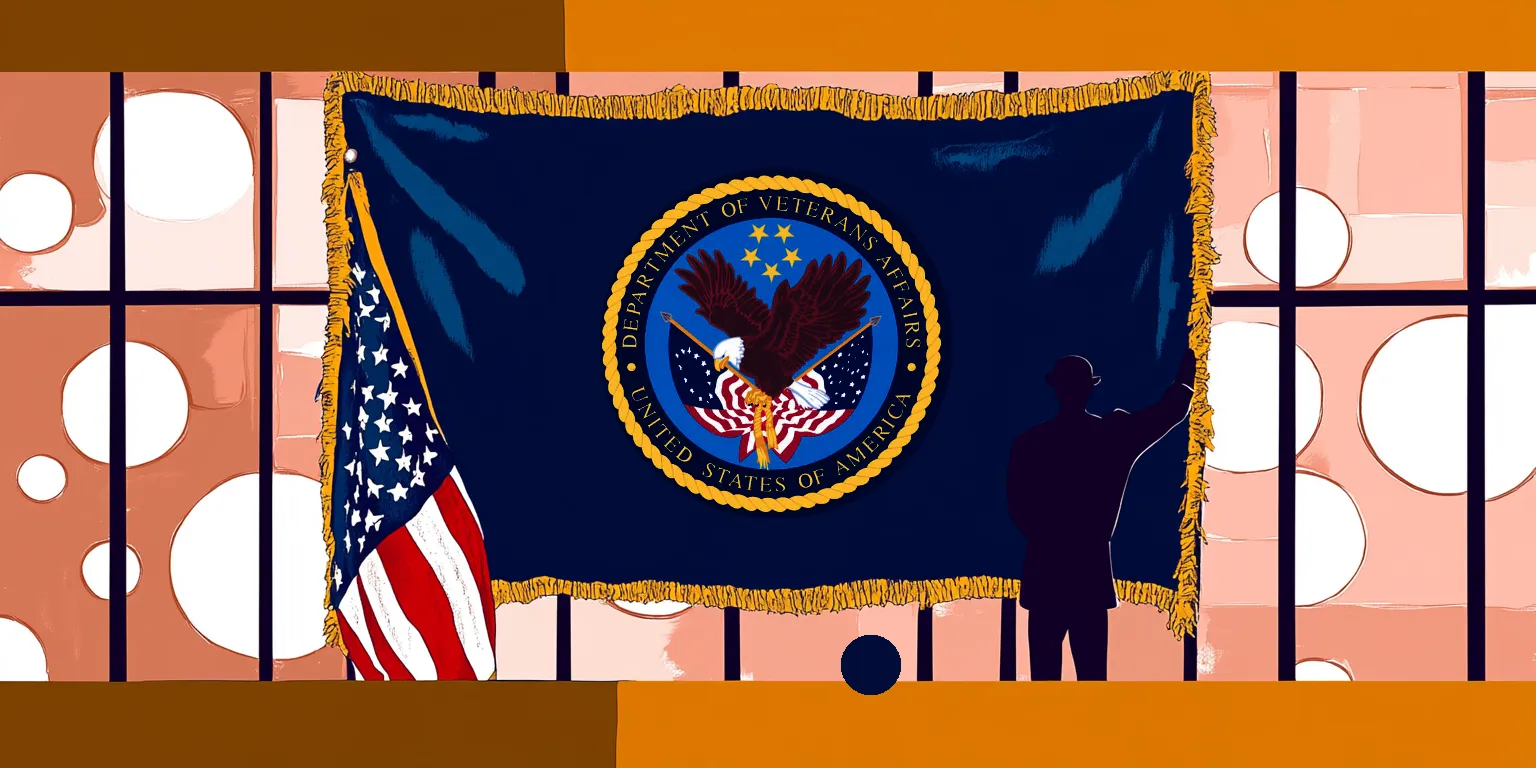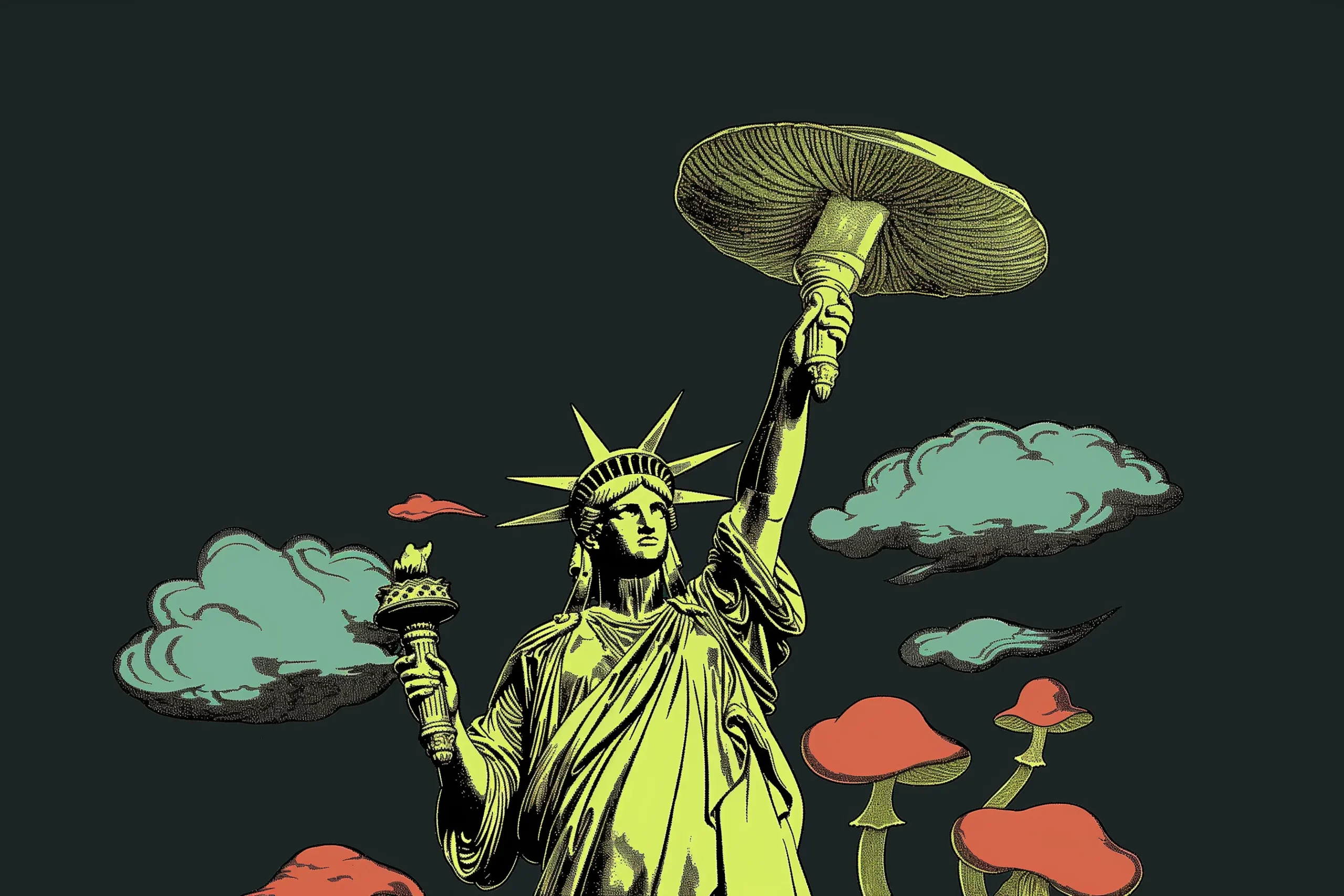In this week’s Psychedelics News Roundup, we cover Switzerland’s potential move to legalize cocaine, new developments in psychedelic research, and potentially massive changes to Kentucky’s Ibogaine research program. Other stories include a Vietnam veteran’s story of success after undergoing psychedelic-assisted therapy and more.
Swiss Capital Bern Explores Legalization of Cocaine in a Pilot Scheme

As reported by Reuters, Switzerland’s capital, Bern, is considering a groundbreaking pilot scheme to legalize the recreational sale of cocaine, reflecting a significant shift in drug policy. This proposal, still in its early stages, has garnered support from the Bern parliament but faces hurdles, including opposition from the city government and the need for changes in national law. This initiative follows the global trend of evolving drug policies, such as Oregon’s decriminalization of small cocaine amounts in 2021 and the absence of prison sentences for drug possession in several European countries. On the federal level, the Biden administration recently pardoned all federal marijuana convictions and is currently exploring options to reschedule marijuana via executive order.
Eva Chen, a Bern council member from the Alternative Left Party, co-sponsored the proposal, advocating for control and legalization over mere repression, citing the ineffectiveness of complete bans. Switzerland has one of Europe’s highest cocaine usage levels, with cities like Zurich, Basel, and Geneva ranking in the top 10 for illicit drug use. The proposal for cocaine legalization follows ongoing trials for legal cannabis sales, indicating a shift in Swiss drug policy towards a more regulated approach.
The proposed pilot scheme would require careful consideration, including sourcing and sales locations, and is still far from legalization. However, proponents argue that legalization could lead to more effective quality controls, reduce criminal market profitability, and provide better health policy outcomes. While experts acknowledge cocaine’s health risks and addictive nature, there is growing support for a more pragmatic approach to drug use, emphasizing harm reduction and controlled usage. The decision on this pilot scheme could come within a few years, depending on the success of current cannabis schemes, and could mark a significant change in Switzerland’s approach to drug policy.(1)
Keep Up with Uncensored Psychedelic Trends
Join our newsletter at Psychedelics Uncensored.
We respect and protect your privacy. By subscribing your info will be subject to our privacy policy . Unsubscribe easily at any time

Are You a Book Lover? We Reviewed Five Amazing and Trippy Psychedelic Books That You Need to Read.
→Nevada Embraces Psychedelic Therapy: A New Era in Mental Health Treatment

As detailed by the Las Vegas Review-Journal, psychedelic therapy is taking root in Nevada, driven by licensed professionals like Gemma Andaya, who focus on using these substances for therapeutic purposes. With recent legislative developments, Nevada is poised to explore the potential benefits of psychedelic-assisted therapy further. This follows the trend seen in states like Oregon and Colorado, which have already made strides in legalizing therapies involving substances like psilocybin, commonly known as magic mushrooms.
In December 2023, Nevada Governor Joe Lombardo approved Senate Bill 242, establishing a working group to study the therapeutic use of entheogenic or psychedelic drugs. While the bill initially aimed to decriminalize the possession of magic mushrooms, it was later modified to focus on forming a group to research and provide recommendations on psychedelic medicines. This group is expected to be operational by early 2024 and could lead to the decriminalization of certain psychedelics in the future.
The potential of psychedelic therapy has been acknowledged by individuals like Assemblyman Max Carter, who experienced personal benefits from ketamine therapy for depression, anxiety, and PTSD. Ketamine, a legal psychedelic for medicinal use, is administered under medical supervision and has shown promise in treating various mental health disorders. Its impact is seen in altering thought patterns and fostering new mental connections, offering long-lasting benefits from even a single dose.
Psychedelic-assisted therapy is not a replacement for traditional talk therapy but is seen as a complementary treatment. The approach requires a supportive setting and is believed to be most effective when combined with regular therapy. This treatment allows for a fresh perspective, enabling patients to approach their mental health issues from a new angle.
Nevada’s future with psychedelic therapy is part of a broader movement to recognize the therapeutic potential of these substances, long used by Indigenous cultures for healing and ceremonial purposes. The state’s working group will play a crucial role in shaping the future of psychedelic therapy, considering not just the medical benefits but also the cultural and historical significance of these medicines. As research continues and societal perceptions evolve, psychedelic therapy in Nevada could become a key component of mental health treatment, offering new hope and avenues for healing.(2)
Vietnam Veteran Overcomes PTSD with MDMA Therapy

In an excerpt from her book (published by Business Insider), I Feel Love: MDMA and the Quest for Connection in a Fractured World, Rachel Nuwer shares the transformative story of John Reissenweber, a Vietnam veteran who overcame years of PTSD with the help of MDMA-assisted therapy.
Keep Up with Psychedelic Trends
Get uncensored psychedelic news, events, and updates. Join Psychedelics Uncensored!
We respect and protect your privacy. By subscribing your info will be subject to our privacy policy . Unsubscribe easily at any time
John’s time in Vietnam had deeply impacted his personality, leaving him feeling isolated and disconnected from his civilian life. Despite his denial of having any issues or PTSD, his struggles became apparent in his second marriage to Stacy Turner. Stacy noticed John’s PTSD symptoms, which often disrupted their lives. After their relationship reached a breaking point, Stacy urged John to seek professional help, leading to his PTSD diagnosis. However, conventional talk therapy showed limited improvement.
John’s psychiatrist introduced him to the idea of MDMA-assisted therapy, part of a clinical trial by MAPS (Multidisciplinary Association for Psychedelic Studies). Initially skeptical due to his aversion to mind-altering drugs, John eventually agreed to participate, encouraged by Stacy and his doctor. Despite initially downplaying his symptoms, Stacy’s intervention helped him get reconsidered for the trial.
During his MDMA therapy sessions, John experienced profound visions and emotional breakthroughs. He felt a sense of connection and started to confront the deep-seated trauma from Vietnam. The sessions and traditional therapy allowed John to relax, connect more deeply with his surroundings, and improve his relationship with Stacy. He also began to process and understand his anger and hurt, leading to a sense of self-acceptance and rebirth.
John’s story is a testament to the potential of MDMA-assisted therapy in treating PTSD and other mental health disorders. It highlights the importance of exploring new therapeutic approaches and the need for compassionate support systems. As psychedelic therapy continues to gain mainstream acceptance, stories like John’s offer hope and insight into the healing possibilities of these treatments.(3)
Kentucky’s Incoming Attorney General to Reassess Ibogaine Research Funding

Originally run by the Commonwealth Journal, Russell Coleman, the incoming attorney general of Kentucky, is set to replace Bryan Hubbard, the outgoing chair and executive director of the state Opioid Abatement Advisory Commission. Hubbard, a leading advocate for using state opioid settlement money to fund research into ibogaine as a treatment for addiction, will be succeeded by Christoper Evans, a former Drug Enforcement Administration (DEA) agent and leader.
Under Hubbard’s leadership, the commission had proposed allocating $42 million (about 5% of the state’s opioid settlement funds) to research aimed at securing Food and Drug Administration (FDA) approval for ibogaine’s use in addiction treatment. Ibogaine, an African psychedelic, has shown promise in suppressing opioid withdrawal symptoms but poses heart-related risks and is currently illegal in most countries.
During a recent announcement of his executive team, Coleman responded to questions about the future of ibogaine research funding by stating the need for an objective review. He emphasized shifting the focus more towards prevention rather than just treatment of drug use. The commission, which handles roughly $900 million from opioid lawsuit settlements, is crucial in determining the state’s approach to tackling the opioid crisis.
Evans, the new chair and executive director of the commission, is known for his work with the DEA and his brief tenure as its acting administrator in 2021. His appointment, along with Coleman’s vision for drug policy, signals a potential shift in Kentucky’s approach to dealing with addiction and substance abuse.
The discussion around ibogaine research funding has been complex, involving various viewpoints and concerns. Some commission members and experts have supported the research, citing the urgent need for novel treatments for substance use disorders. However, skeptics like state Rep. Danny Bentley have expressed doubts about ibogaine’s feasibility, safety, and the long timeline and high costs associated with bringing it to market.
Governor Andy Beshear has also shown skepticism towards the ibogaine research proposal, especially concerning how Hubbard promoted it. The change in leadership and policy direction under Coleman and Evans may lead to a reassessment of the state’s strategy in addressing the opioid crisis, potentially impacting the future of psychedelic-assisted therapy research in Kentucky.(4)
Major News Network Covers Psilocybin’s Potential in Mental Health Therapy

An article from CNN details that psilocybin (found in magic mushrooms), converted into psilocin in the body, has shown promise in treating conditions like major depressive disorder, anxiety, cluster headaches, anorexia, and various substance abuse disorders. The United States Food and Drug Administration has recognized psilocybin as a breakthrough therapy, underscoring its significant potential in mental health treatment.
These psychedelic substances work by interacting with serotonin receptors in the brain. Serotonin, known as the “feel good” hormone, is often at low levels in individuals suffering from depression, anxiety, PTSD, and other mental health issues. Unlike traditional selective serotonin reuptake inhibitors (SSRIs), which can take weeks to show effects, psilocybin and LSD create rapid changes in brain neuron connectivity. This immediate impact disrupts negative thought patterns and promotes more flexible thinking, making these drugs effective for treating depression.
Psychedelics like psilocybin also promote neuroplasticity – the growth of new dendrites and synapses, enhancing communication between brain cells. This contrasts with neurogenesis (the development of new brain cells) and is believed to help maintain positive changes in thought patterns and mental states. The effects of a single psychedelic dose can be long-lasting, but for chronic conditions like depression, symptoms may reappear after several months. Microdosing, taking small amounts of psilocybin several times a week, has been proposed to maintain brain health and creativity, although scientific studies have yet to confirm its benefits conclusively.
However, not everyone is suitable for psychedelic treatment. Individuals currently on SSRIs, those with bipolar disorder or schizophrenia, or those with a family history of psychosis are often excluded from clinical trials due to potential risks. Additionally, the search for alternatives continues, with scientists like pharmacologist Brian Roth working to develop non-psychedelic drugs that mimic the benefits of psychedelics without the hallucinogenic experience.(5)
This week’s psychedelic news showcases a dynamic and evolving landscape, reflecting a growing global interest in the potential of psychedelics for both recreational and therapeutic uses. From Switzerland’s bold steps towards the legalization of cocaine, highlighting a shift towards harm reduction and controlled substance use, to the promising clinical trials of psilocybin for mental health treatment, these developments underline a significant shift in societal attitudes towards drug policies.
In the U.S., states like Nevada are pioneering the incorporation of psychedelic therapy into mainstream mental health treatment, signifying a broader acceptance of these substances. Meanwhile, personal stories, like that of Vietnam veteran John Reissenweber, illustrate the profound impact psychedelic-assisted therapy can have on individuals struggling with mental health disorders. However, the debate in Kentucky over ibogaine research funding reminds us that this is a complex issue, requiring careful consideration of both the benefits and risks associated with psychedelic substances. These decisions will not only influence public health policies but also shape the future of psychedelic research and therapy, potentially opening new doors for treatment and understanding of mental health conditions.
Sources

1. Swiss capital Bern considers legal cocaine project | Reuters. (n.d.). https://www.reuters.com/world/europe/swiss-capital-bern-considers-legal-cocaine-project-2023-12-20/
2. “Taking root”: Nevada’s future with psychedelic therapy. (2023, December 26). Las Vegas Review-Journal. https://www.reviewjournal.com/news/politics-and-government/nevada/taking-root-nevadas-future-with-psychedelic-therapy-2971153/
3. Nuwer, R. (n.d.). How a Vietnam vet saved his second marriage and overcame years of PTSD with help from MDMA therapy. Business Insider. Retrieved December 27, 2023, from https://www.businessinsider.com/vietnam-vet-overcame-ptsd-help-from-mdma-drug-therapy-psychedelic-2023-11
4. News, A. C. K. H. (2023, December 26). Incoming attorney general replaces leading advocate of funding research aimed at legalizing psychedelics for addiction treatment. Commonwealth Journal. https://www.somerset-kentucky.com/kentucky/incoming-attorney-general-replaces-leading-advocate-of-funding-research-aimed-at-legalizing-psychedelic-for-addiction/article_69e0889c-a415-11ee-bf60-d3b6a5637fcd.html
5. LaMotte, S. (2022, June 11). How psilocybin, the psychedelic in mushrooms, may rewire the brain to ease depression, anxiety, and more. CNN. https://www.cnn.com/2022/06/11/health/psilocybin-brain-changes-life-itself-wellness-scn/index.html
This material is not intended as a replacement or substitute for any legal or medical advice. Always consult a medical professional about your health needs. Psychedelics are widely illegal in the United States, and readers should always be informed about local, state, and federal regulations regarding psychedelics or other drugs.

 David Connell
David Connell





 Ross Dillon
Ross Dillon 
